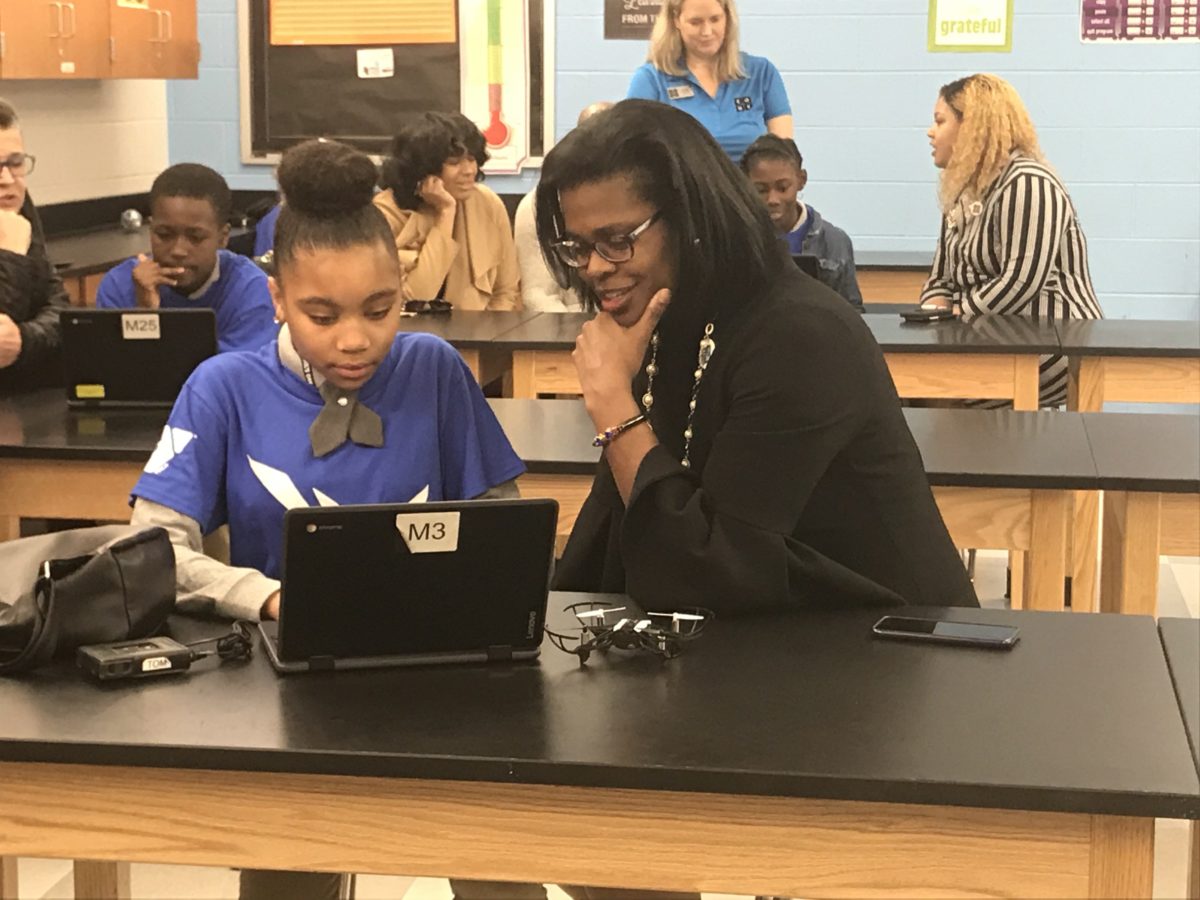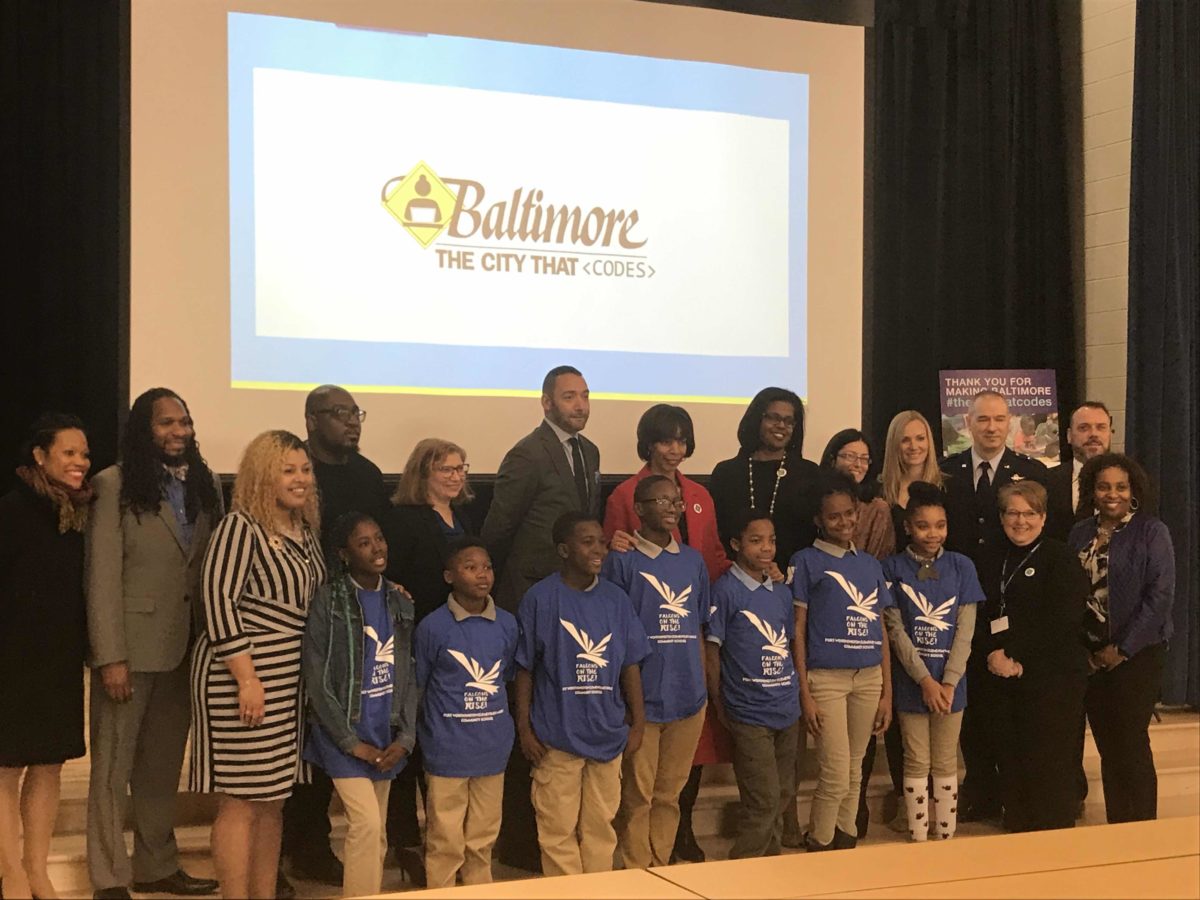Volunteers are offering an introduction to coding in classrooms inside Baltimore city schools this week, helping 10,000 students get experience building with tech tools.
It’s part of Hour of Code, a series of coordinated events held around the world from Dec. 3-9, which falls during Computer Science Education Week.
In all, there are 350 volunteers heading out to more than 50 public schools as part of the effort. Locally, the event is being organized by Baltimore City Public Schools, computer science education nonprofit Code in the Schools and consulting giant Accenture.
Kicking off the week inside Fort Worthington Elementary/Middle School in east Baltimore’s Berea neighborhood on Monday morning, Baltimore City Public Schools CEO Sonja Santelises said the weeklong sprint grew after Accenture Senior Manager Miruna Burk saw how her own children, who are city schools students, took to an Hour of Code event last year.
The growth “shows what happens when you have partners, organizations and businesses within our community who see the potential of our young people and get behind it. What started in one school is growing,” Santelises said.
Working with CITS and Accenture, BCPS Office of Media and Instructional Technology Coordinator Stacey Davis played a key role in the expansion for this year.
“Last year there were 40 volunteers. This year there are 350,” said Marty Rodgers, Accenture managing director for health and public service in the southeast. “Last year there were 400 students.” This year, it aims to reach 10,000 students, Rodgers said. According to Code in the Schools Executive Director Gretchen LeGrand, it amounts to $1 million worth of work time.
Along with Accenture, which has a total of 2,500 employees participating in Hour of Code across multiple cities, volunteers are from organizations like the Maryland National Guard, Johns Hopkins and local tech companies.
At the kickoff, Mayor Catherine Pugh said computer science education is important for the city economically. She talked about the recent announcement about plans for a cybersecurity hub in Port Covington that will create new tech jobs in the city.
“We should be preparing our young people now for those opportunities, and that is what today is all about,” she said.

Inside a classroom at Fort Worthington Elementary/Middle School, teacher Farron George helped get students set up with drones, virtual reality headsets and mini-robots. As one of the recently opened buildings that are part of the 21st Century Schools program to update Baltimore’s public schools, it’s outfitted with 3D printers, projectors and plenty of computers.
At the direction of a script from sixth grade honors student Taylor Howard, a drone started flying in the air. Programming the UAV through the platform created by Baltimore-based Workbench (which was acquired by Google last week), Howard had the drone fly in several directions, before landing on a desk next to a fellow student. Later, she showed a delighted Santelises.
To George, the tools are just as important as being able to provide education that involves trying a solution, and fixing it until it works.
“They get plugged into an experience you’re not going to be able to have in any other class,” he said.
Programming will continue beyond that hour, and there are signs that the effort to keep expanding computer science education will continue, as well. Students took a photo with the Hour of Code partners under a logo that read “#thecitythatcodes,” taking influence from Baltimore’s slogan “The City That Reads,” and officials talked of uniting Baltimore around such an effort.
“To really make computer science education equitable, to really change the face of tech so that it includes women and people of color, it’s going to take a lot more than an hour,” Code in the Schools’ LeGrand said.
Hour of Code is offering computer science education to Baltimore city students all week







